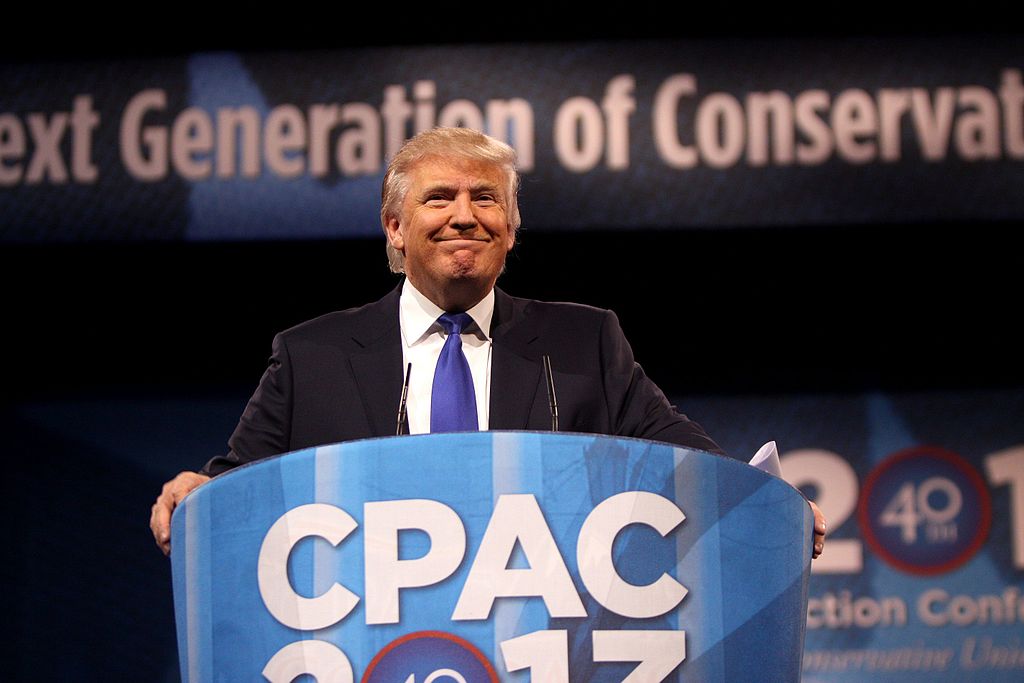As President Donald Trump embarks on his second term in January 2025, his administration is poised to implement sweeping education reforms that could significantly alter the landscape of American schooling. These initiatives encompass the elimination of the Department of Education, the expansion of school choice, and the promotion of "patriotic" curricula, all of which have ignited fervent discussions among educators, parents, and policymakers.
Elimination of the Department of Education
A cornerstone of President Trump's education agenda is the proposed dismantling of the U.S. Department of Education. Advocates argue that this move would return control to state and local authorities, fostering tailored educational approaches. However, critics contend that such a measure could lead to disparities in educational quality and access, particularly affecting marginalized communities. The feasibility of this proposal remains uncertain, as it would require congressional approval and faces potential legal challenges.
Expansion of School Choice
The administration plans to broaden school choice options through federal tax credit scholarships, enabling families to select private or charter schools for their children. Proponents believe this initiative empowers parents and fosters competition among schools, potentially elevating educational standards. Conversely, opponents argue that diverting funds from public schools could exacerbate existing inequalities and undermine the public education system.
Promotion of "Patriotic" Education
President Trump has emphasized the need for curricula that instill a sense of patriotism and traditional values. This includes revising educational content to focus on American history and civics, while eliminating programs perceived as promoting critical race theory or gender ideology. Supporters assert that such measures are essential for fostering national unity and pride. Critics, however, express concerns about censorship and the exclusion of diverse perspectives, arguing that a comprehensive education should encompass multiple viewpoints.
Appointment of Linda McMahon as Secretary of Education
In line with these reforms, President Trump has nominated Linda McMahon, former WWE executive and Small Business Administration head, as Secretary of Education. McMahon's background in business and her advocacy for school choice align with the administration's objectives. Her nomination has sparked debate, with supporters highlighting her leadership experience, while detractors question her lack of direct experience in educational administration.
Public Reaction
The proposed education reforms have elicited a spectrum of responses:
-
@EduReformAdvocate: "Empowering parents with school choice is a step in the right direction for our children's future."
-
@PublicSchoolTeacher: "Dismantling the Department of Education threatens the quality and equity of education nationwide."
-
@HistoryProf123: "Patriotic education should not come at the expense of critical thinking and understanding diverse histories."
Conclusion
President Trump's 2025 education reforms represent a bold shift toward decentralization, parental empowerment, and a redefined national curriculum. While supporters laud these initiatives as necessary for revitalizing the education system, critics caution against potential inequities and the suppression of diverse perspectives. As these policies unfold, their impact on students, educators, and communities will be closely scrutinized, shaping the future of American education.



 AI is already creeping into election campaigns. NZ’s rules aren’t ready
AI is already creeping into election campaigns. NZ’s rules aren’t ready  Trump Announces U.S. Strikes on Iran Navy as Conflict Escalates
Trump Announces U.S. Strikes on Iran Navy as Conflict Escalates  Australia Rules Out Military Involvement in Iran Conflict as Middle East Tensions Escalate
Australia Rules Out Military Involvement in Iran Conflict as Middle East Tensions Escalate  UK Accepts U.S. Request to Use British Bases for Defensive Strikes on Iranian Missiles
UK Accepts U.S. Request to Use British Bases for Defensive Strikes on Iranian Missiles  U.S. Lawmakers Question Trump’s Iran Strategy After Joint U.S.-Israeli Strikes
U.S. Lawmakers Question Trump’s Iran Strategy After Joint U.S.-Israeli Strikes  Russia Signals Openness to U.S. Security Guarantees for Ukraine at Geneva Peace Talks
Russia Signals Openness to U.S. Security Guarantees for Ukraine at Geneva Peace Talks  Zelenskiy Urges Change in Iran After U.S. and Israeli Strikes, Cites Drone Support for Russia
Zelenskiy Urges Change in Iran After U.S. and Israeli Strikes, Cites Drone Support for Russia  Suspected Drone Strike Hits RAF Akrotiri Base in Cyprus, Causing Limited Damage
Suspected Drone Strike Hits RAF Akrotiri Base in Cyprus, Causing Limited Damage  Israel Strikes Hezbollah Targets in Lebanon After Missile and Drone Attacks
Israel Strikes Hezbollah Targets in Lebanon After Missile and Drone Attacks  Israel Launches Fresh Strikes on Iran After Death of Supreme Leader Ayatollah Khamenei
Israel Launches Fresh Strikes on Iran After Death of Supreme Leader Ayatollah Khamenei  Trump Warns Iran as Gulf Conflict Disrupts Oil Markets and Global Trade
Trump Warns Iran as Gulf Conflict Disrupts Oil Markets and Global Trade  Middle East Conflict Escalates After Khamenei’s Death as U.S., Israel and Iran Exchange Strikes
Middle East Conflict Escalates After Khamenei’s Death as U.S., Israel and Iran Exchange Strikes  Trump Says U.S. Combat Operations in Iran Will Continue Until Objectives Are Met
Trump Says U.S. Combat Operations in Iran Will Continue Until Objectives Are Met  Does international law still matter? The strike on the girls’ school in Iran shows why we need it
Does international law still matter? The strike on the girls’ school in Iran shows why we need it  Argentina Tax Reform 2026: President Javier Milei Pushes Lower Taxes and Structural Changes
Argentina Tax Reform 2026: President Javier Milei Pushes Lower Taxes and Structural Changes  Why did Iran bomb Dubai? A Middle East expert explains the regional alliances at play
Why did Iran bomb Dubai? A Middle East expert explains the regional alliances at play 




























